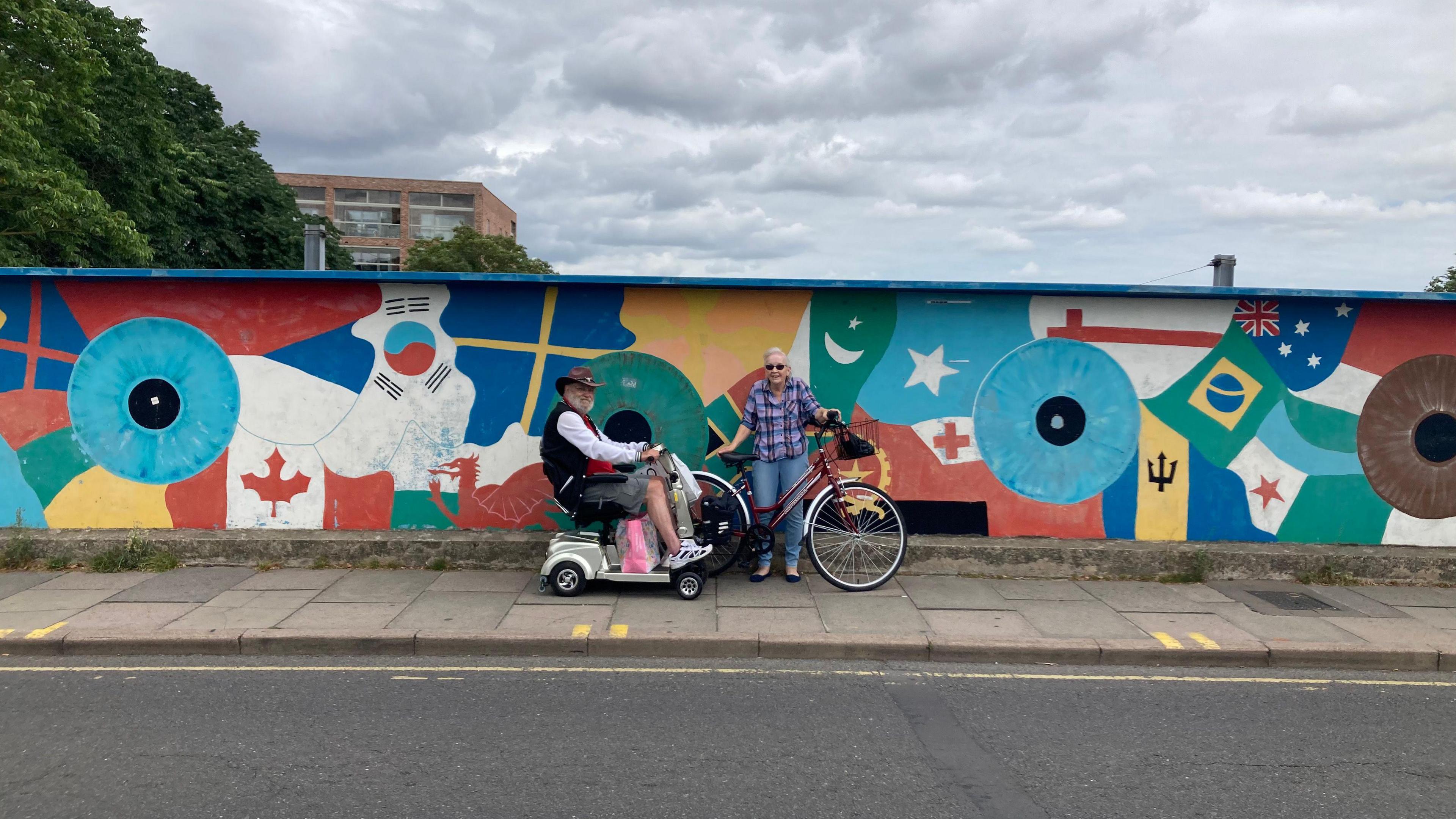Protesters disrupt work on city centre road
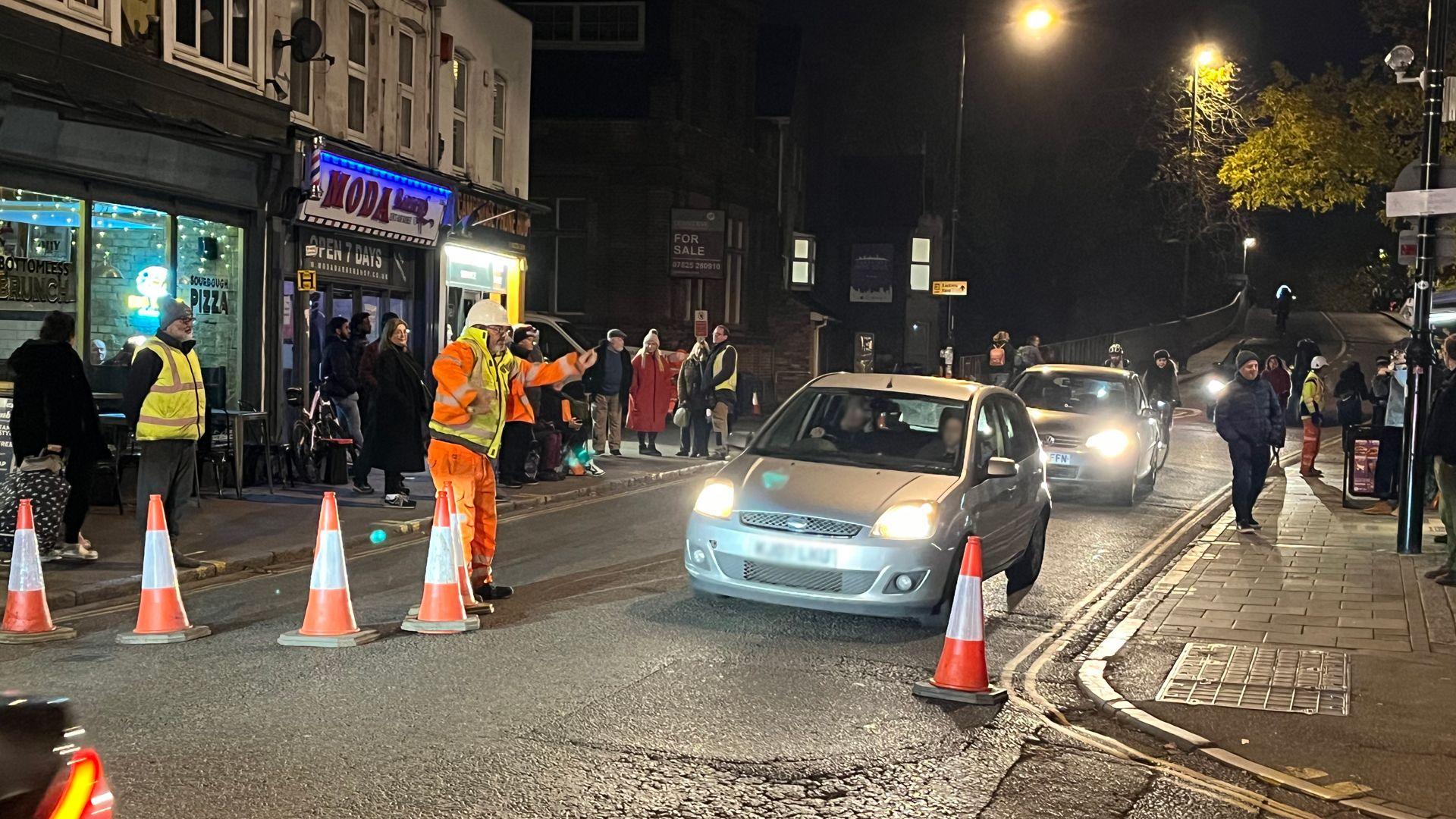
Protesters have prevented work on a new bus gate for a third consecutive night
- Published
Protesters have continued to disrupt work to install a bus gate which would restrict most traffic from using a city centre bridge.
Cambridgeshire County Council said work was meant to begin on Mill Road, Cambridge, on 11 November, but contractors had been left unable to start.
The council said Automatic Number Plate Recognition (ANPR) cameras had been vandalised and that any criminal damage would not be tolerated.
"Everyone has the right to a peaceful protest, however the safety of our workforce and welfare of other road users is paramount," it said.
A BBC reporter at the scene on Wednesday said about 60 protesters were there and had prevented any work from taking place for a third consecutive night.
He described the protest as peaceful, but said contractors had removed bollards from the road and left the scene at about 19:15 GMT.
The council said any interference with equipment could be referred to the police.
"We would urge those wishing to protest to do so peacefully and not to interfere with the works as this may present a risk to the workforce and other road users," it said.
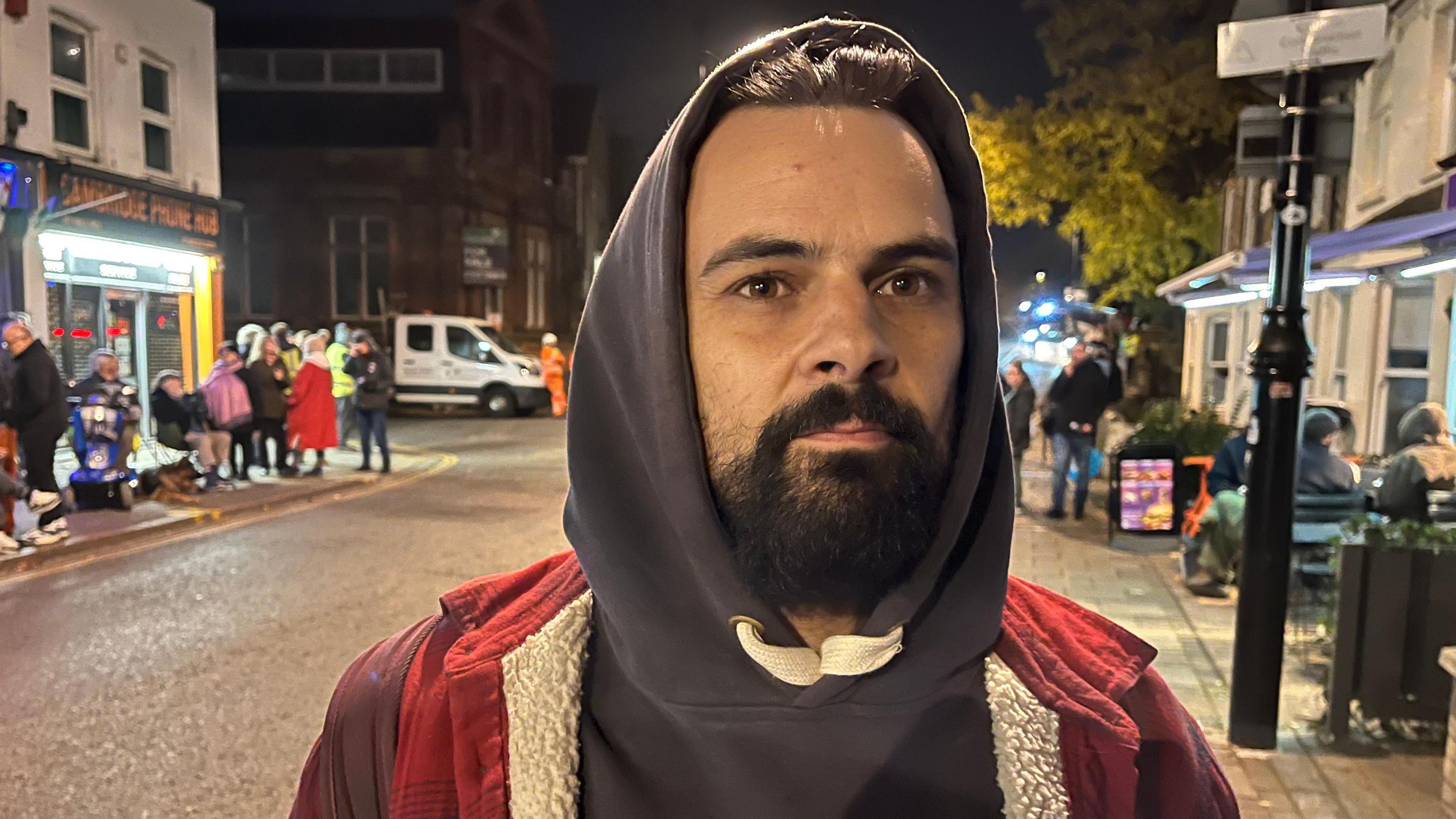
Will Bannell said protesters had "succeeded" with stopping construction work
Will Bannell, who attended the protest and is an opponent of the scheme, said plans to introduce the bus gate were "baffling".
He said: "More like [the council is] ramming it through the front door, it's quite blatant. It has become quite shocking some of the ways the council has commenced the whole thing - brazen, you should say."
He said the protesters had "succeeded" and the works had been stopped and workmen had returned to sit in their vans.
He said it would be "lovely" to see Mill Road less congested and polluted, but he did not agree with the plans.
The plans have been welcomed by some local residents.
Katie Hawks, the vice-chair of Mill Road 4 People, said traffic restrictions were needed on Mill Road Bridge and the protesters who opposed the plan were in the "minority".
She added that reducing the amount of motor traffic would increase custom on the road.
"Mill Road is a high street which still has independent shops and eateries... but something which puts people off, makes people feel unsafe and contributes to pollution and accidents is the amount of traffic," Ms Hawks said.
"This traffic was a problem in 1973 and is even more of a problem now as it's increased hugely.
"The protests are the latest attempt by a small number of people to get in the way of a democratic process - and a genuinely popular decision."
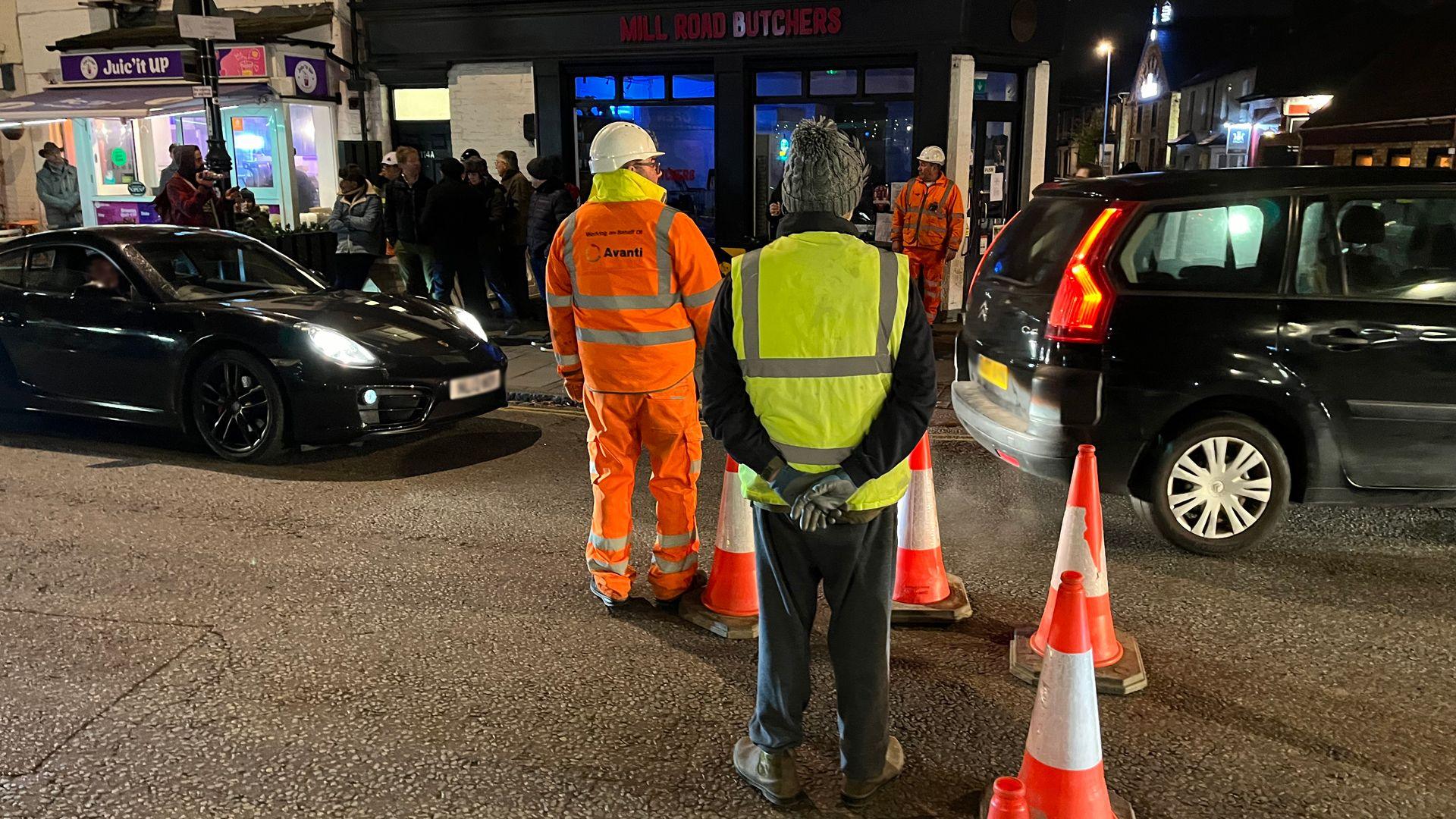
Cambridgeshire County Council said any interference with equipment would be referred to the police
The council initially said work to introduce the bus gate would last until 25 November, with overnight closures between 19:00 and 06:00.
The decision to introduce the gate was agreed at a special meeting of the Highways and Transport Committee in October.
Most vehicles, including private cars, would be banned from the bridge.
A local campaign group had previously challenged the authority when it wanted to introduce the restrictions and argued that fines for using the bridge would create traffic elsewhere.
In August the council dropped a legal battle with local campaign group, Friends of Mill Road Bridge, after the group opposed the authority's plans to introduce a traffic ban on part of the road, exempting buses, cyclists, emergency services, taxis and blue badge holders.
Previously, Pamela Wesson, the chair of Friends of Mill Road Bridge, said on Facebook the battle felt like "a David-vs-Goliath struggle".
She said the group's legal challenge included the allegation that the council had "made a mistake of fact in relation to how the decision affected individuals with disabilities".
Get in touch
Do you have a story suggestion for Cambridgeshire?
Follow Cambridgeshire news on BBC Sounds, Facebook, external, Instagram, external and X, external.
Related topics
- Published25 October 2024
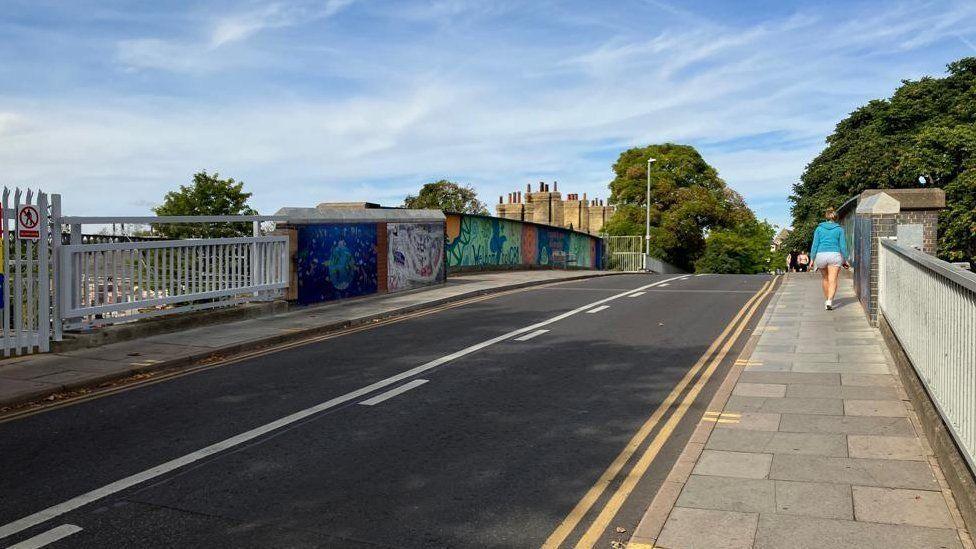
- Published4 October 2024
